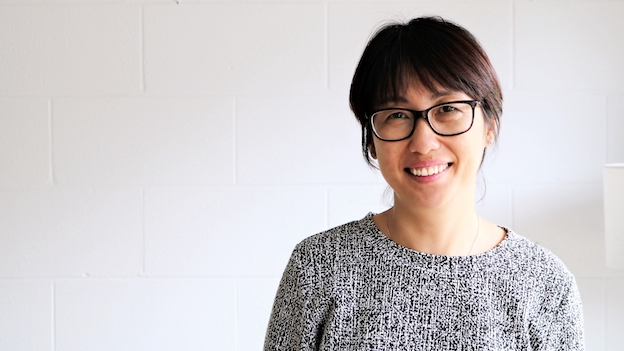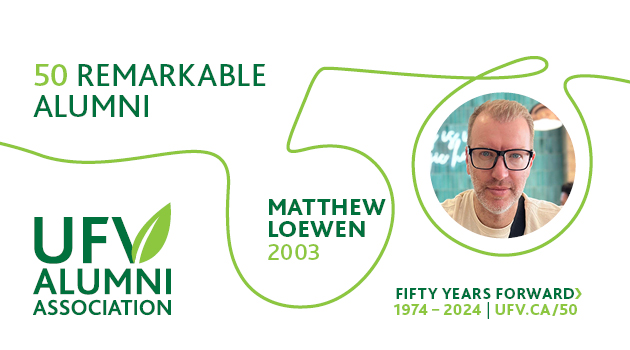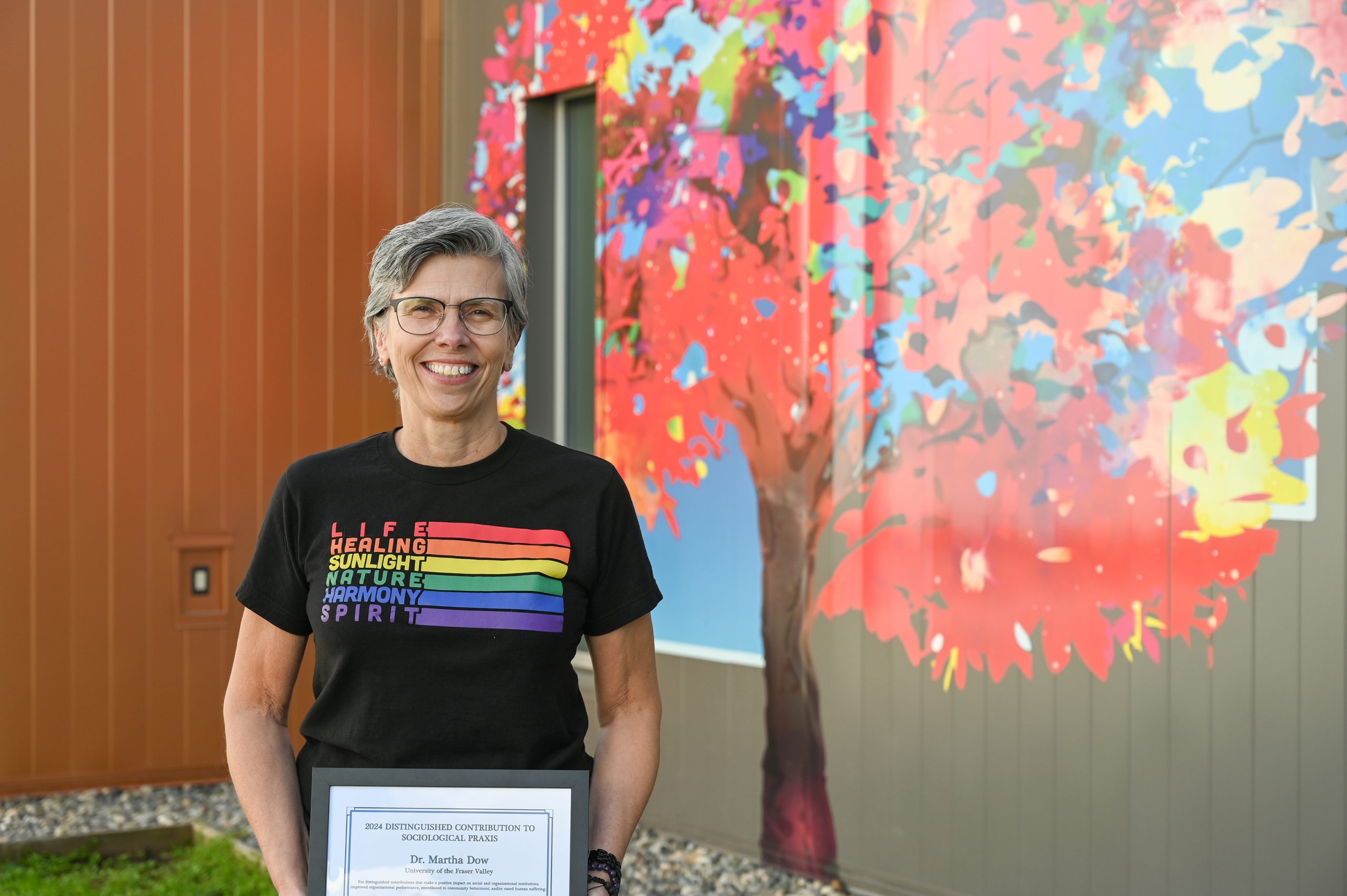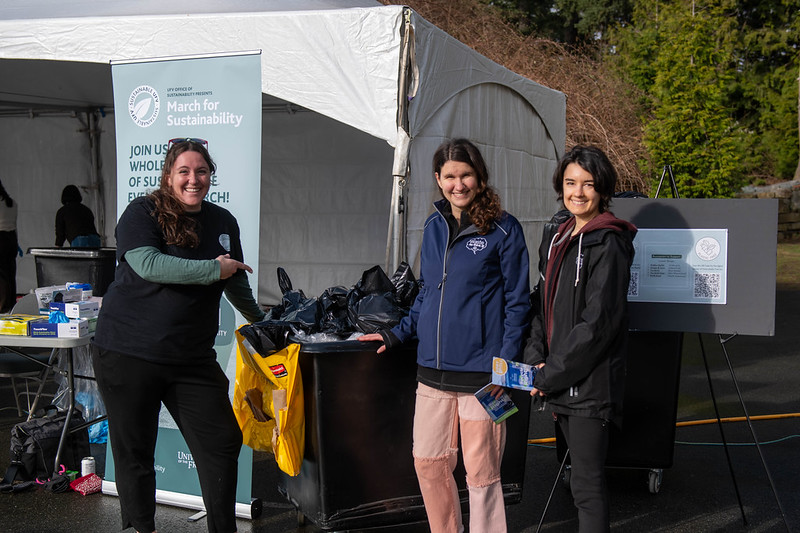Adjusting to online teaching and learning — advice from a communications professor

Almost all UFV courses will be offered online this semester due to the social distancing required to mitigate the spread of the COVID-19 virus. This means that UFV faculty members have had to adjust to teaching in an online environment.
Dr. Mai Anh Doan is an assistant professor of communications at UFV. She had some online teaching experience before pandemic hit, and has spent the summer improving her online teaching methods and practice by through teaching summer courses. This fall, she will be teaching CMNS 125 (Communicating Professionally) and CMNS/MACS 212 (Introduction to Media and Public Relations). She agreed to share some insights about her experience developing as an online instructor.
Before you had to suddenly switch all your courses to online learning in mid-March, what was your experience with teaching online?
I was already teaching a CMNS 125 (Communicating Professionally) class online at the beginning of the Winter 2020 semester. Before that, I had some, but not extensive experience with blended learning. I used to teach a master’s course where half of the course was taught face to face and the other half was via WebEx.
What strategies and techniques did you employ to create an enjoyable, stimulating, and effective online teaching environment, for you and the students?
I often tell my students that you need to know the audience in order to communicate well. I think the same idea applies to teaching online. It’s an uncertain time for all of us, and some students, being so young and inexperienced with this online environment, could feel extra anxious. I keep that in mind as I design the courses.
This translates to having an easily accessible course shell on Blackboard. I’ve redesigned my Blackboard interface so that each week, students will need only to go to one place — the Current Week folder — to access all information such as the weekly learning objectives, learning materials, tasks, assignment instructions, and submissions. With an audience that is so used to having instant access to information, an additional click could be one too many.
And since students could get easily worried, I try to be there for them as often as I can. Students need to feel that we care about them, more now than before. While UFV has been offering many support services, we instructors are usually students’ first point of contact. So I reply to students’ emails within 24 hours if not sooner and have a video chat with them if needed. Frequent communication is crucial. But we also need to make sure that we don’t over-communicate. Finding that balance could be tricky at times :-).
What are some ways (methods, attitudes, approaches, innovations) your students have adapted successfully to the online environment?
 I have been lucky to have wonderful students throughout. I admire them for their resilience and flexibility, and the energy that often comes with youth. These are some of the tips they’ve shared with me:
I have been lucky to have wonderful students throughout. I admire them for their resilience and flexibility, and the energy that often comes with youth. These are some of the tips they’ve shared with me:
- Look after yourself. Try to balance study and life. Online could be overwhelming, so you’d really need to take some time out to either exercise or do something fun. Many students have taken up new hobbies or skills during the quarantine. Mental health is more important than ever.
- Stay organized: Many students recommend a calendar with due dates and other important dates for all the courses in the semester and set a reminder ahead of them.
- Treat online courses as face to face ones: This means setting a regular schedule to sit down to learn the materials and do the tasks. Train your brain to “virtually go to class” during these hours, get things done so they don’t stack up at the end of the semester.
- Let your instructor know if you can’t access certain links or materials. This could be a technical or human error. The instructor is not a know-it-all techie but they will find resources to help you fix it.
What are some of the challenges you (and your students) encountered along the way? How did you address them?
I love being in class. I enjoy chatting with students, getting to know them as individuals, seeing them work, and bounce ideas off and learn from each other. I think students miss that too. Online teaching and learning can’t completely replace those face to face interactions, but I, like many other instructors, am trying my best to maximize the benefits technologies bring.
One of the things my students and I did over the summer to replicate the face-to-face interactions was having many video discussions, n pairs or bigger groups of 5-6, in real-time or recorded. I also asked students to make a video introduction at the beginning of the semester to share their experiences during the pandemic. The class was then asked to find their study buddy or group members from there.
A student once told me that she found it useful to have an online study group. They formed a small group and used social media (this particular group used WhatsApp) to discuss course-related issues. The instantaneity of social media and the informal nature of the group allowed the students to feel engaged and relaxed. I think it’s a great idea and would encourage all my students to take the initiative to form such groups.
Did you use the resources provided by UFV Teaching and Learning Centre and the learning professionals to learn about new resources and improve your online teaching? If so, how was it helpful?
UFV has been great at getting the resources ready for all of us to use during this time. I found the micro-courses offered by Teaching and Learning very practical. But it isn’t just T&L. The College of Arts has been offering many talks and sessions to discuss and share the experience. My Communications department talked extensively about online teaching and learning at our department retreat recently. We also help each other out with issues specific to teaching communication. University-wide, as we are preparing for the semester start, you see that many support departments such as International or Accessibility have revised their processes. I feel really thankful for all the work that everyone puts in to support our students and instructors.
What ‘lessons learned’ are you bringing to your teaching practice now that you have some experience teaching online?
The lighter load of the summer semester gave me a great opportunity to try out a couple of new things. Going forward, I’ll continue to have:
- A variety of learning materials including videos (YouTube, interviews with guest speakers, synchronous and asynchronous sessions), audio (podcasts), and print (readings such as textbook chapters and professional and academic articles) etc.
- A diversity of learning activities in various formats such as educational games, pair and group video discussions, quizzes, written/video assignments etc.
- Students to give me informal feedback throughout the semester and a formal one at the end.
- An effective monitoring system to make sure that no student is left behind. This involves having various communication channels and reaching out to the students who miss out on an assignment submission or don’t show up to synchronous sessions as early as possible.
What advice do you have for students embarking on their first online learning experience?
I’d like students to know that we are here to help you with your learning. We (instructors) don’t know everything but we’ll find ways to answer your questions. So, communicate with us as frequently as possible. It might sound like a cliche, but we are in this together, so don’t hold back your questions. And please use our office hours!
The second piece of advice is to learn your way around Blackboard and/or other technologies your instructors are using.
And enjoy your learning! Things don’t always go smoothly but that’s a part of the learning process. And you have us to support you.
Student Deanna McIntyre took a course from Mai Anh Doan this summer and provided a rave review.




